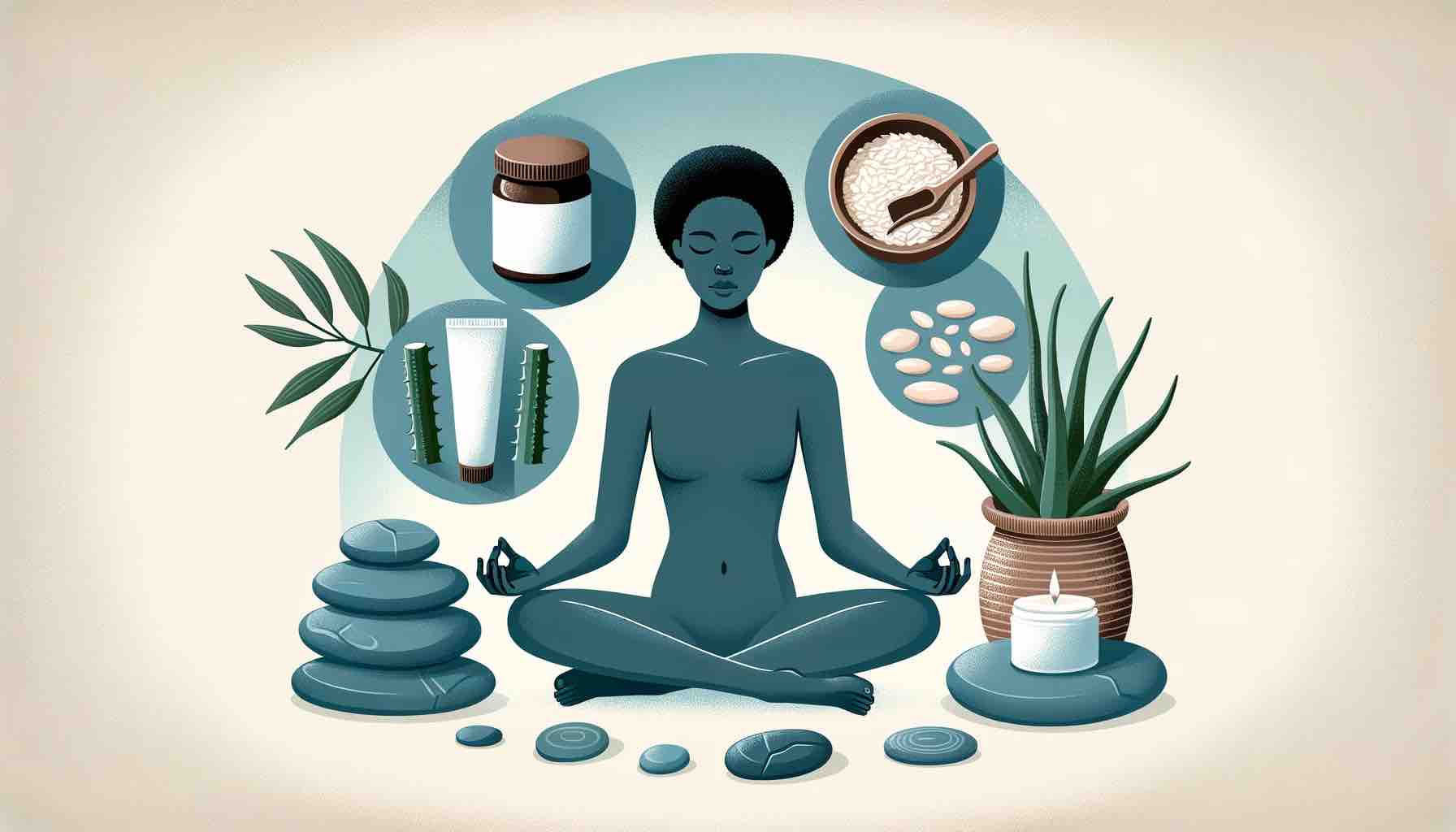
Eczema can be a relentless skin condition that causes dry patches, redness, and intense itching. Fortunately, dermatologists like Dr. Dray have shared valuable tips to help manage and soothe eczema symptoms. Below are 10 tips inspired by Dr. Dray’s advice, along with a helpful video for those seeking visual guidance.
Understanding Eczema
Before diving into the tips, it’s essential to understand that eczema, or atopic dermatitis, is a chronic inflammatory skin condition. It’s influenced by both genetic factors and environmental triggers. For a deeper look into eczema’s causes and coping mechanisms, consider reading our detailed article: Eczema and Dermatitis: Causes and Coping Mechanisms.
1. Stop the Scratch-Itch Cycle
The first and perhaps most challenging tip is to stop scratching. Scratching can worsen eczema by increasing inflammation. Instead, apply a moisturizer when you feel the urge to scratch. Moisturizers can soothe the skin and aid in barrier restoration.
2. Choose the Right Moisturizer
Selecting a moisturizer like Aveeno’s Eczema Therapy Itch Relief Balm, which is free from irritating ingredients, is crucial. Look for products with colloidal oatmeal, which can protect and heal the skin.
3. Keep Your Skin Hydrated
Hydration is key. Use a hydrating balm or cream to maintain moisture in the skin, especially after bathing. For more on the benefits of oatmeal in skincare, read: Oatmeal Baths: Remedy for Eczema and Dermatitis.
4. Avoid Triggers
Identify and avoid your eczema triggers, which can range from certain fabrics to stress. Understanding what exacerbates your eczema is a significant step toward better skin health.
5. Gentle Skincare Routine
Adopt a gentle skincare routine. Use mild, fragrance-free cleansers and avoid harsh exfoliants or scrubs.
6. Wear Protective Clothing
Protect your skin with soft, breathable fabrics, and avoid rough materials like wool, which can irritate the skin.
7. Manage Stress
Stress can trigger eczema flare-ups. Engage in stress-reducing activities like yoga, meditation, or gentle exercise.
8. Maintain a Cool Environment
Heat can aggravate eczema. Keep your living environment cool and use a humidifier to add moisture to the air.
9. Be Mindful of Diet
Some foods may trigger eczema. Maintain a balanced diet and be mindful of any food sensitivities. For dietary tips related to eczema, check out: Foods to Avoid for Eczema: Insights from Dr. Alex Hui.
10. Consult with a Dermatologist
Always consult with a dermatologist for personalized advice and treatment plans tailored to your specific needs.
Watch Dr. Dray’s Video for More Insights
For a visual guide and further explanation of these tips, watch Dr. Dray’s informative video:
Video credit: Dr Dray on YouTube
By implementing these tips and seeking guidance from professionals like Dr. Dray, you can take significant steps toward managing your eczema effectively. Remember, each journey is personal, and what works for one may not work for all. For more information on managing eczema and related conditions, explore our other articles and resources.
Manuka Honey for Eczema and Dermatitis
Exploring Eucrisa: An Eczema Solution
FAQs
- What are the most effective ways to soothe eczema on the eyelids? While individual responses may vary, many find relief through applying hypoallergenic moisturizers, avoiding known irritants, and using gentle cleansing routines.
- Can diet influence the severity of my eczema symptoms? Yes, certain foods can exacerbate eczema for some individuals. It’s beneficial to identify and avoid potential dietary triggers, and maintain a balanced diet rich in anti-inflammatory foods.
- Are there any natural remedies for eczema that dermatologists recommend? Dermatologists often suggest natural remedies such as colloidal oatmeal baths, aloe vera, and coconut oil for their soothing and moisturizing properties.
- How can I prevent eczema flare-ups during seasonal changes? Protecting your skin from extreme temperatures, keeping it moisturized, and using a humidifier can help manage eczema during seasonal shifts.
- What should I look for in skincare products if I have eczema? Seek out products labeled as fragrance-free, hypoallergenic, and specifically designed for sensitive skin to minimize the risk of irritation.
- Is it possible to cure eczema, or is it a lifelong condition? While there is no known cure for eczema, many management strategies can effectively control symptoms and improve quality of life.
- How does stress affect eczema, and what can I do about it? Stress is a known trigger for eczema flare-ups. Managing stress through mindfulness, exercise, and relaxation techniques can be beneficial.
- What are the signs that I should see a dermatologist for my eczema? If you’re experiencing severe discomfort, your eczema is not responding to over-the-counter treatments, or you’re noticing signs of infection, it’s time to consult a dermatologist.
- Can eczema be triggered by allergies, and how can I find out? Allergies can indeed trigger eczema. An allergist can conduct tests to determine if you have specific allergies that may be contributing to your eczema.
- What are the best fabrics to wear if I have eczema? Soft, breathable fabrics like cotton are best for eczema-prone skin, as they reduce irritation and allow the skin to breathe.
Blog Tags for the Post
eczema relief, dermatologist tips, skin hydration, natural skincare, eczema triggers, gentle cleansing, stress management, hypoallergenic products, eczema diet, seasonal eczema care









